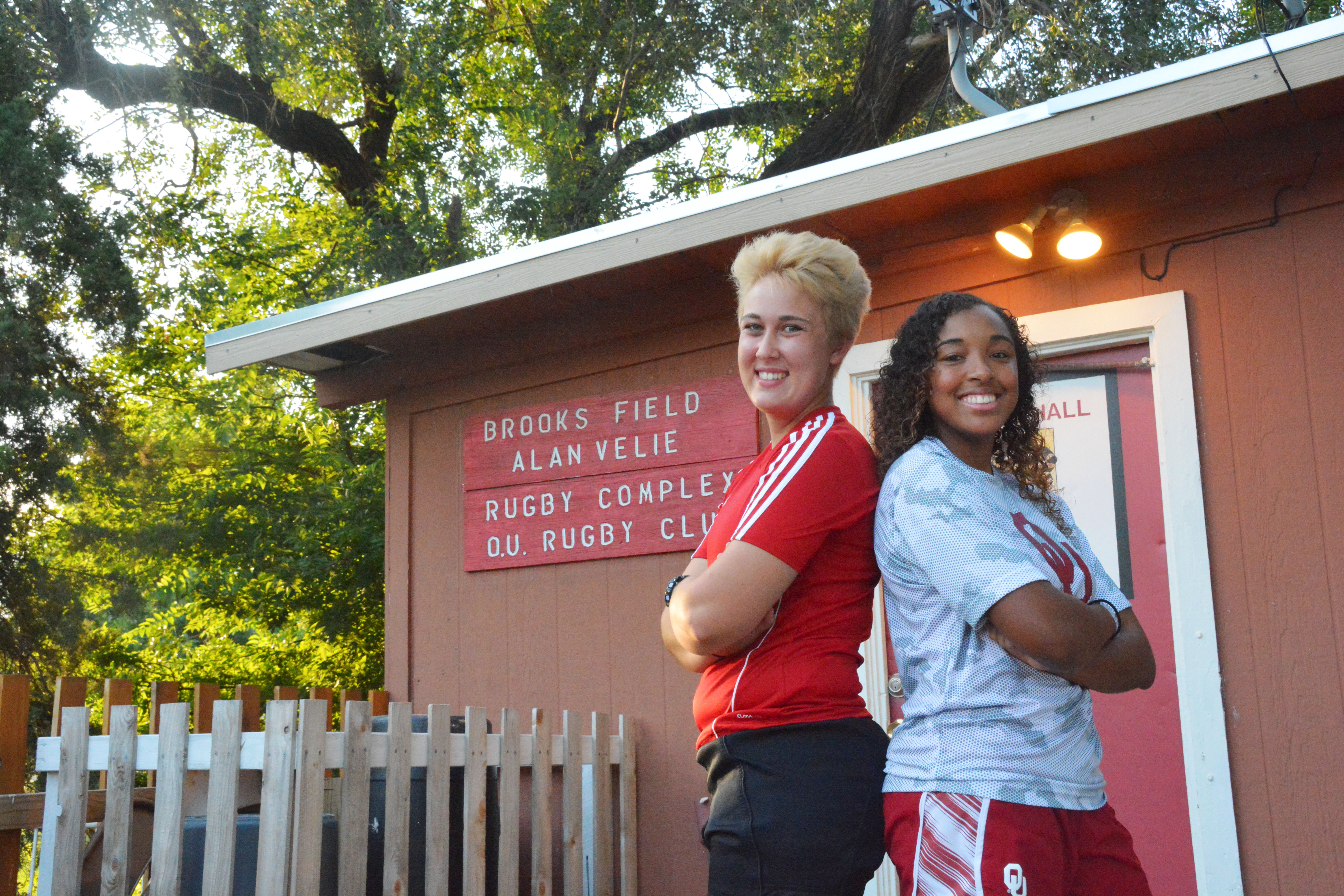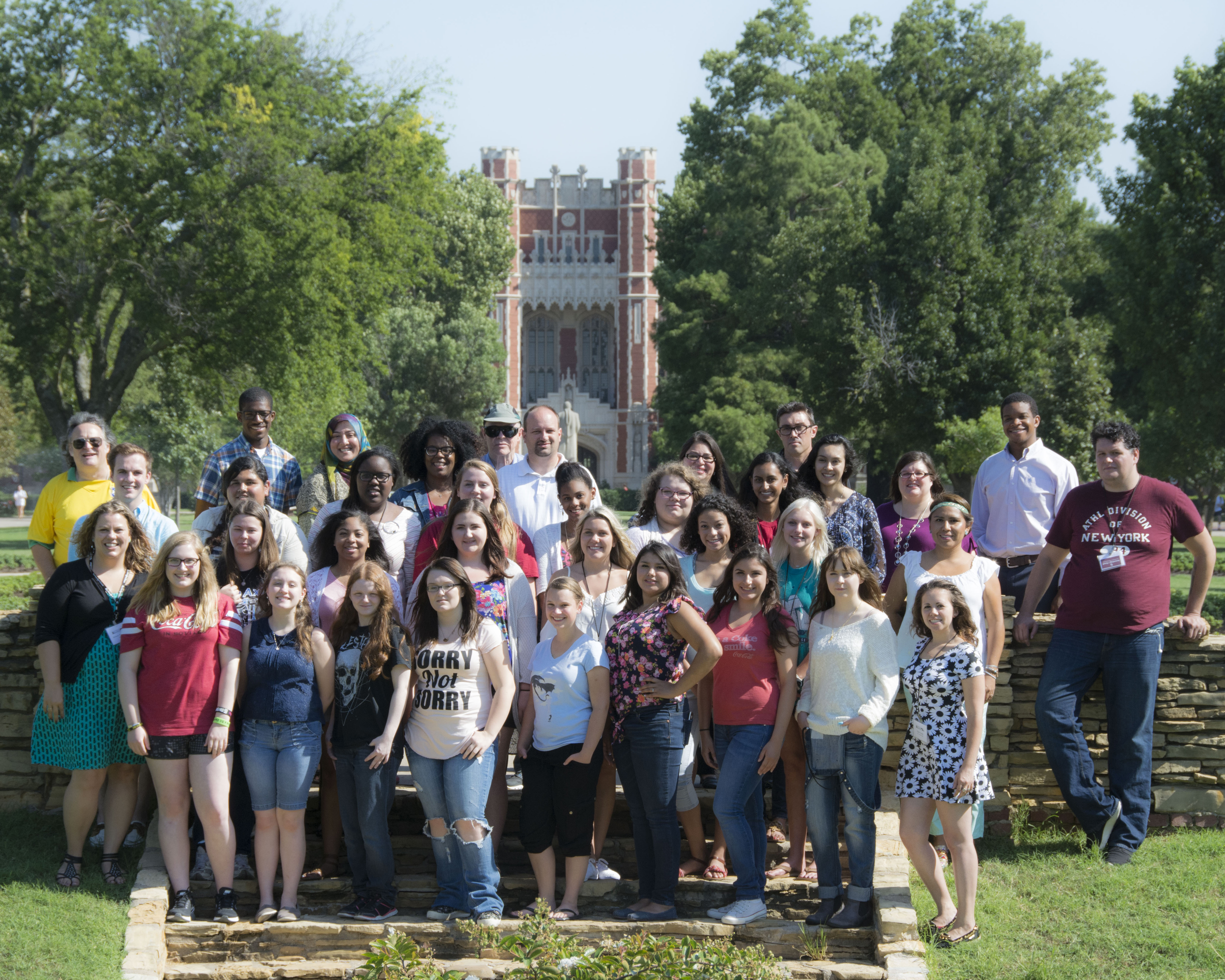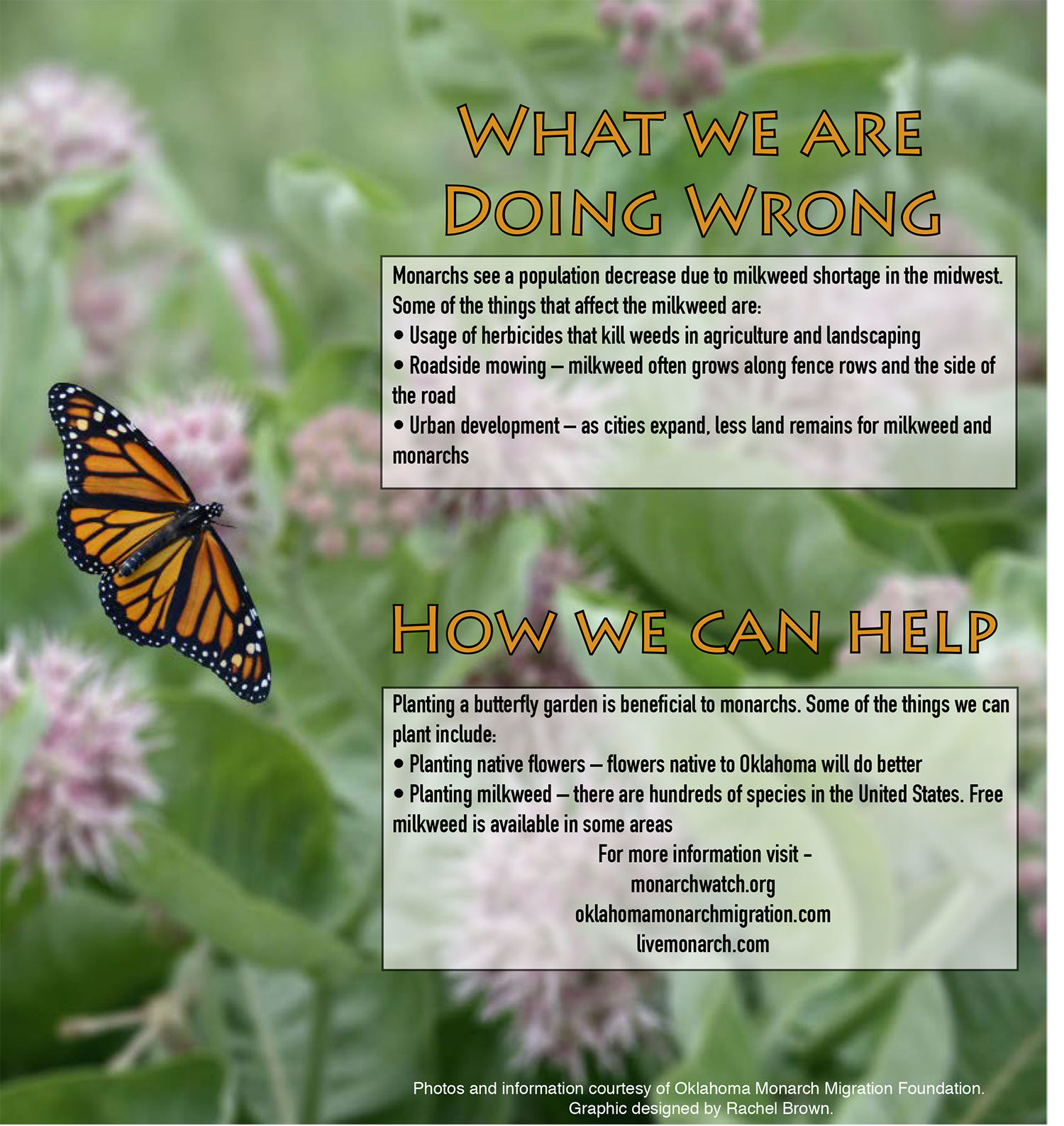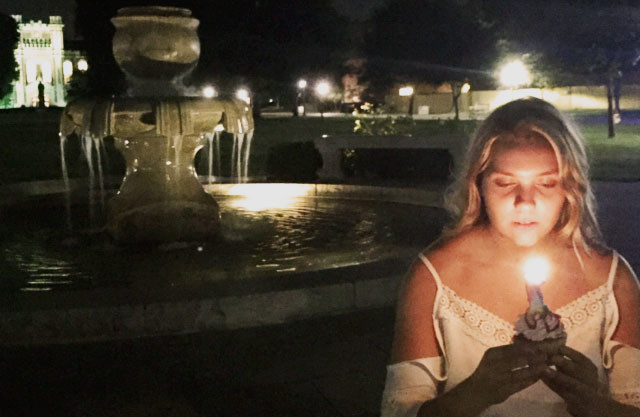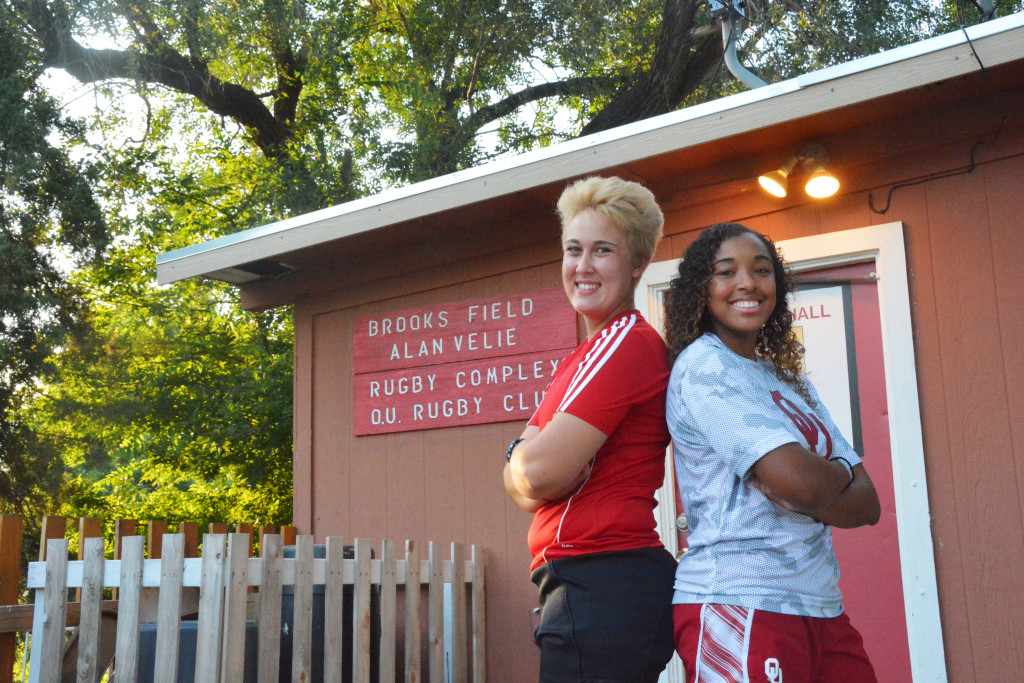
Chelden Love and Rachel Fisher walked through their clubhouse, smiling as they reminisced and cited awards accumulated over the years. These, they said, were earned through pain, sweat and blood — lots of blood. So goes rugby.
In her first game with the University of Oklahoma (OU) women’s club rugby team, dubbed the Roses, Fisher recalled colliding with an opponent and flattening the player’s nose. Blood flowed “as though you had turned on a faucet,” Love said. “It all came rushing out.”
Fisher, 20, played the next three games with an egg-sized knot on her head and, she later learned, a concussion. Fisher said she still remembers none of the second game.
Rugby is played with 15 players on a team and minimal padding. The players take the game very seriously.
“I have seen pictures of myself where I look like a crazed animal,” Fisher said.
Love and Fisher said they can tell from the first time a player trys out whether she will stick with the Roses.
“Whenever you see someone get tackled by the opposing team, you can see the look in their eyes,” Fisher said. “That’s how you can tell.”
“It’s a telltale sign of love or hate,” said Love, 21.
The two say rugby is addictive and becomes a part of the players; it gets in their souls. It’s not only the love for the game, but also the bond they experience with teammates and opponents. After games, both teams return to the clubhouse for food and drink.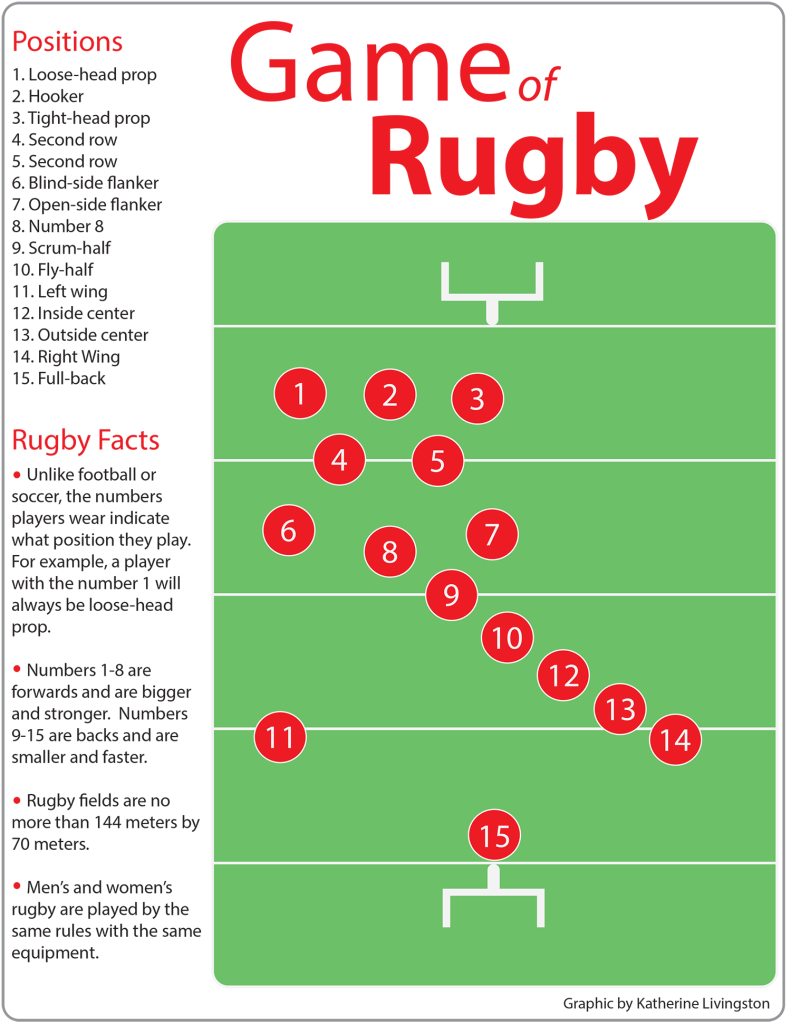
“On the field, you try to kill each other, but off the field there is a sense of camaraderie,” Fisher said.
The Roses may be close-knit, but that doesn’t mean they are easy on each other. Instead, they always strive to do better.
Love and Fisher discussed misconceptions about whether women are tough enough to play rugby. The two don’t feel discriminated against, they said, just coddled.
“I’ve had people say to me that there is no way you play,” Love said.
“There is this idea that you will get severely injured,” Fisher added. “The thing is, if you assume all women are weak, then no one will get hurt.”
Rugby was a man’s sport that was never specifically adapted for women, so both genders play by the same rules, which has caused controversy. Ignore that, Love and Fisher say. Instead, players should push that boundary, break out of the box, test limits and build character.
USA Rugby, the sport’s national governing body in America, reported that in 2013-2014, the women’s game was one of the world’s fastest-growing sports. Within the United States, an estimated 25,000 teenage girls played rugby, with nearly 10,000 high school players competing on 345 teams, according to the organization. The numbers are even higher among preteen girls, with an estimated 400,000 participants.
The Roses ignore the stigmas associated with their sport. Having one another is all the support they need, according to Love and Fisher.
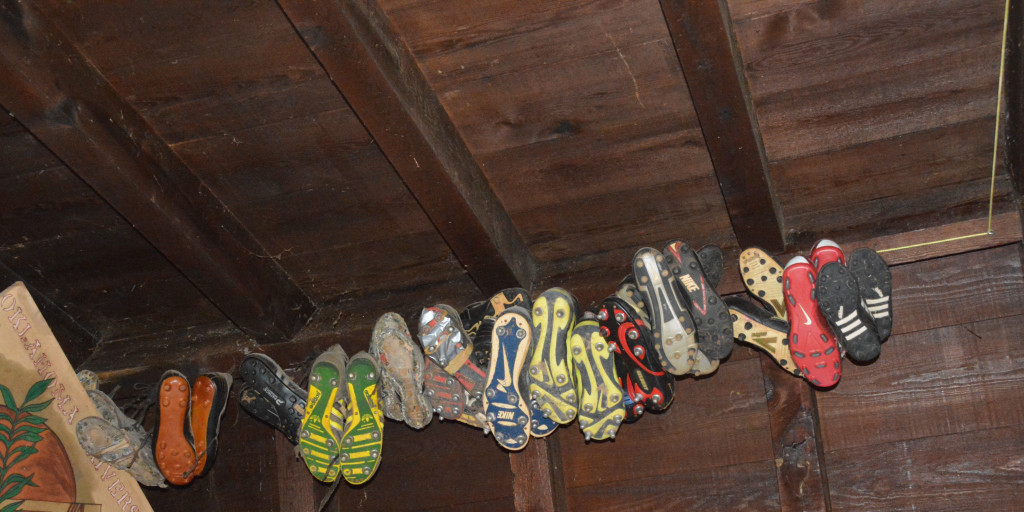
“We’re there for the sport — and we’re there for our team,” Love said.
As they strolled the clubhouse, they halted and pointed to the ceiling at 14 pairs of rugby boots hanging from the rafters, some looking as old as the sport, which began in 1823.
The shoes, they said, were worn by OU rugby players who have died. Each pair holds some of a player’s ashes. Love and Fisher joked about what might happen if a shoestring snapped and the ashes fell on someone’s head. After a burst of laughter, they grew silent.
Both said they hope their shoes will hang there someday. The honor isn’t prestigious or flashy, Fisher said, it’s symbolic. Those players are still part of the place where they truly belonged, with a team that wants to remember them and — more importantly — with family.

